How to Protect Scales & Decrease Risk
It is important to protect scales & other measurement equipment from damage. A quality scale for your business can be a significant investment that will prove to be imperative during day to day operations. The best way to protect that investment is to treat the scale as the valuable tool that it is. Doing so will ensure you get the longest possible life out of your investment. A great way to protect scales is to routinely perform preventative maintenance, including calibration, greasing load cells, cleaning under the scale & more. While the MIchelli Weighing & Measurement team of experts is here to help with the more complex maintenance tasks, there are some simple steps you can take to protect scales on your own.
Here are some simple tips to protect scales from damage:
Clean Underneath & Around Scale Regularly
Keep your floor scale clean and remove all debris from under the scale routinely. Even just a small piece of debris in the right place can make the scale inaccurate. It may seem obvious in this picture, but it’s very common for pieces of pallets, or shipping material to become lodged underneath floor scales.
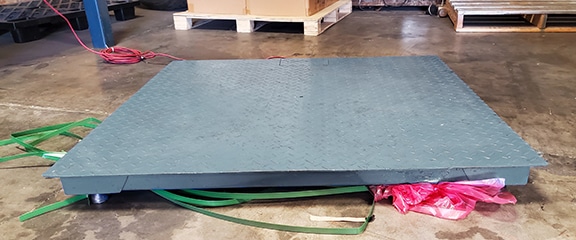
Ensure Stability
Make sure that all 4 of the scale’s feet are stable on the floor or other surface, and that the scale is level. This issue is particularly common with smaller scales. Oftentimes, a customer will call us to report that their scale is producing inaccurate measurements, and upon further inspection, one of the scale feet is missing or the scale is not level.
Limit Speed on Vehicle Scales
Protect vehicle scales by limiting speed. Ensure that truck drivers roll onto & off of the scale slowly (around 5mph is recommended) to avoid damage that could require expensive repairs. This load cell is located within a truck scale used inside of a landfill. The load cell is sheared in half. This damage was most likely caused by trucks driving too fast as they drive onto & off of the truck scale.
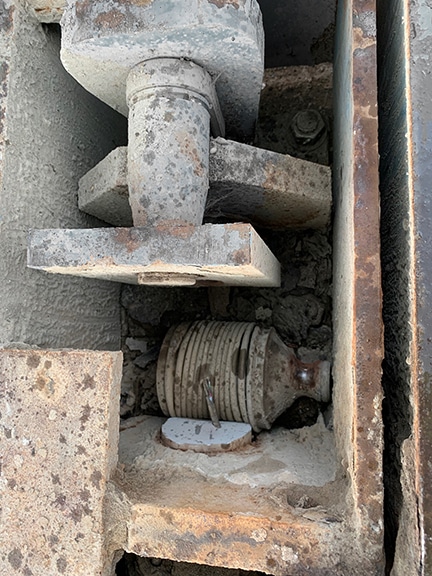
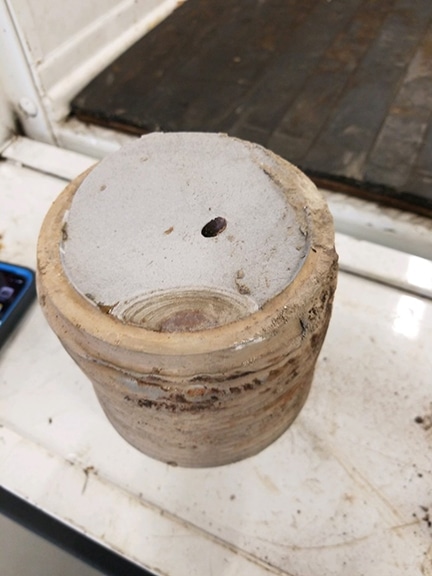
Clean Scale Often
Cleaning is an important part of scale maintenance and is imperative to proper scale performance. Consult your product manual for cleaning instructions for your particular scale make and model or ask a Michelli Weighing & Measurement expert for application specific advice. For example, truck scales located in landfills should be washed out with high pressure water on a regular basis to prevent corrosion from acidic debris. Don’t forget to clean any dirt & debris from underneath truck scales. Dirt piled under vehicle scales can prevent the scale from moving, which can cause an inaccurate weight reading.
Take Care of Scale Components
Keep indicators & cables out of the path of forklifts, and educate forklift drivers on the importance of these components so they take extra precautions to avoid making contact. When possible, mount indicators so it’s less likely that they are run over by a forklift. Also, keep cables out of the path of the forklift so they aren’t destroyed. Most scale cables are not “plug and play”, so if a cable is tugged, or ripped out of the back of an indicator, it could lead to a costly repair.
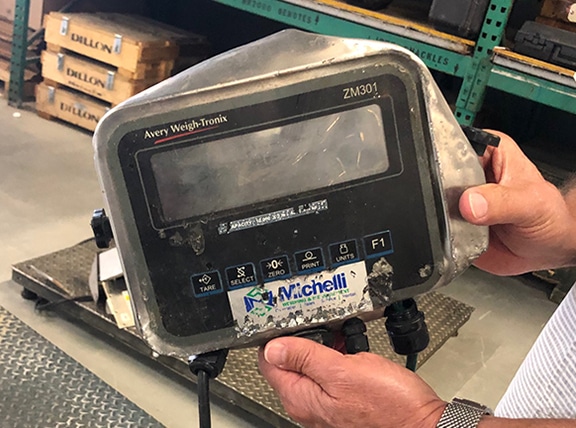
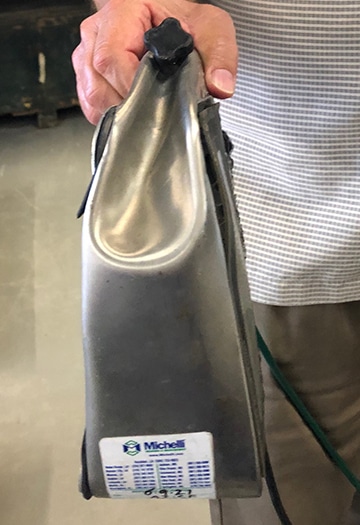
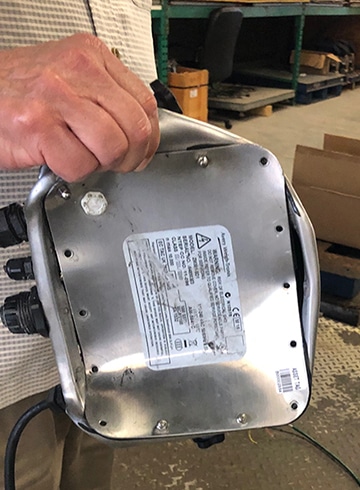
Pull Scale Away From Wall
Do not position scales right up against a wall. Protect scales by pulling them away from the wall so that the cable is not crushed between the scale & the wall. This will help prevent the destruction of the cable where it attaches to the scale.
Use an Experienced Service Team
Protect scales by using an experienced service team. A team of experts who know how to properly install, calibrate & service your scale is irreplaceable. The Michelli Weighing & Measurement team of experts provide unbeatable service & can help with any questions you might have. After servicing your scale, the Michelli technician can also provide guidance on any specific steps you should take considering your application & environment.
An inexperienced service team could end up causing damage that costs thousands of dollars to repair, or worse, causing an issue that is irreparable. In the picture below, an inexperienced technician used a basic washer for a rail scale installation. As railcars ran over the scale, the washer was flattened inside of the receiver cups, just like a penny would if it were on the tracks. A more experienced technician would have known to use a specialized shim so this wouldn’t happen. Don’t be the victim of an inexperienced team.
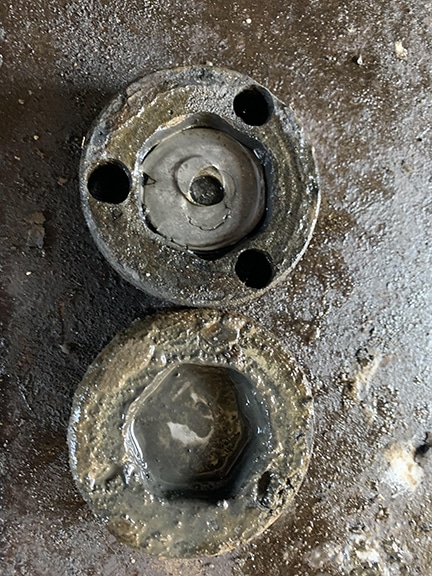
Need help with scale maintenance?
The Michelli Weighing & Measurement service experts are here to help keep your scales in great working condition. Contact your nearest Michelli location today to learn about our preventative maintenance service agreements.
